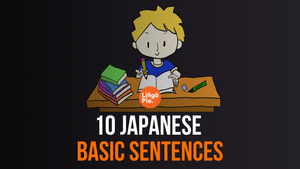As someone who spent years teaching at a high school in Sumida, I can't tell you how many times I heard (and said) good luck in Japanese every day. My first week? Total chaos. Kids were tossing "ganbatte" around before math tests, teachers were sliding "gambatte kudasai" into every conversation, and there I was, scrambling to figure out which version to use without sounding like a total rookie.
But here's the thing about saying good luck in Japanese: Each situation calls for something different! Stick with me and I'll show you exactly how to use each one - plus some bonus Japanese phrases that'll make your Japanese friends say WOW!
⛩️ 10 Basic Japanese Sentence Patterns For Beginners
⛩️ 7 Days Of The Week In Japanese: A Complete Guide
⛩️ Clothing In Japanese: 40+ Easy Vocab For Japanese Clothing

How To Say Good Luck In Japanese
頑張って (Ganbatte) is the most common and versatile way to say "good luck" in Japanese. It literally comes from the verb 頑張る (ganbaru), which means "to do one's best" or "to persevere." When you take the verb 頑張る (ganbaru) and add て (te), you get the imperative form 頑張って (ganbatte), which works like a friendly command.
Here are some examples:
- 「テスト頑張って!」 "Tesuto ganbatte!" (Good luck on your test!)
- 「面接頑張って!」 "Mensetsu ganbatte!" (Good luck with the interview!)
- 「明日も頑張って!」 "Ashita mo ganbatte!" (Good luck tomorrow too!)
Want to make it more polite? Just add ください (kudasai) at the end: 頑張ってください (Ganbatte kudasai). This is perfect for talking to your boss, teachers, or anyone you need to show respect to.

Is it Ganbare Or Ganbatte?
Understanding the distinction between "ganbatte" (頑張って) and "ganbare" (頑張れ) is crucial for using Japanese encouragement correctly. Both forms come from the verb 頑張る (ganbaru), meaning "to persevere" or "to do one's best," but they carry different levels of force and are used in distinct social contexts.
Here's a clear breakdown of the differences:
| Feature | Ganbatte (頑張って) | Ganbare (頑張れ) |
|---|---|---|
| Form Type | -te form (softer) | Imperative form (stronger) |
| Tone | Gentle, supportive | Direct, commanding |
| Usage Level | Everyday situations | Dramatic or intense moments |
| Common Settings | Schools, offices, casual conversations | Sports events, competitions, rallies |
| Formality | More polite | More casual/forceful |
| Example Usage | 「テスト頑張って」(Good luck on your test) | 「頑張れ!」(Come on! You can do it!) |
| When to Use | Daily encouragement, general support | Cheering, motivational speeches |
頑張って (ganbatte) can be made more formal by adding ください (kudasai), becoming 頑張ってください (ganbatte kudasai). This polite form is ideal for formal situations or when speaking to superiors. However, 頑張れ (ganbare) is rarely modified for formality as its very nature is direct and spirited.
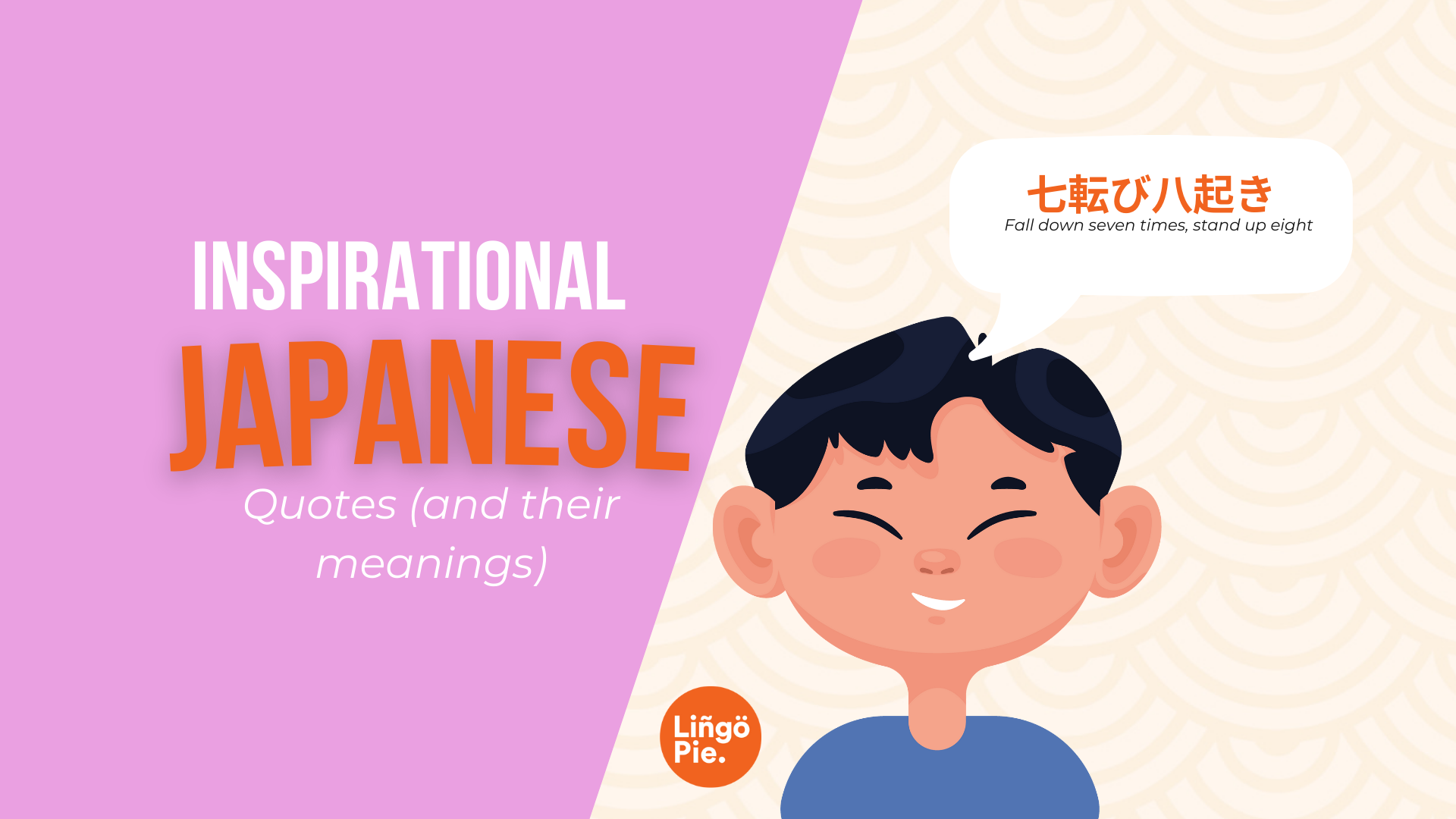
Other Ways To Say Good Luck In Japanese
Depending on the situation - whether it's a job interview, performance, or competition - Japanese people use different expressions to show support and encouragement. These phrases each carry their own nuance and level of formality, making them perfect for specific scenarios.
| Japanese Script | Romanization | What It Means |
|---|---|---|
| 幸運を祈ります | Kōun wo inorimasu | I pray for your good fortune |
| 成功を祈ります | Seikō wo inorimasu | I pray for your success |
| うまくいくよ | Umaku iku yo | It will work out |
| 気をつけて | Ki wo tsukete | Take care |
| いってらっしゃい | Itterasshai | Have a good trip/day |
| お大事に | Odaiji ni | Take care of yourself |
| ファイト! | Faito! | Fight! (You can do it!) |
| しっかりね | Shikkari ne | Stay strong |
| 応援しています | Ōen shiteimasu | I'm cheering for you |
| うまくいくといいね | Umaku iku to ii ne | Hope it goes well |
| 健闘を祈ります | Kentō wo inorimasu | Wishing you success |
| 君なら出来るよ | Kimi nara dekiru yo | You can do it |
| 運がいい | Un ga ii | Good luck |
| 大丈夫だよ | Daijōbu da yo | It'll be fine/You'll be okay |
| 期待しています | Kitai shiteimasu | I have high hopes for you |
| 勝利を祈ります | Shōri wo inorimasu | I pray for your victory |
| 頑張ってください | Ganbatte kudasai | Please do your best (polite) |
| 負けないで | Makenaide | Don't give up |
| 思い切って | Omoikitte | Go for it/Take the plunge |
| よろしく | Yoroshiku | Good luck/I'm counting on you |
@japanesewithhikari Here are the different ways of saying “Good luck” in Japanese 🇯🇵😊 Keigo 幸運をお祈りしております。 kouun wo oinori shite orimasu. Formal 上手くいきますように。 umaku ikimasu youni. Casual がんばって。 ganbatte. Yakuza ヘマすんじゃねえぞ! hema sunja neezo!
♬ オリジナル楽曲 - Japanese with Hikari - Japanese with Hikari
Learn Japanese Phrases Through Netflix Shows
Japanese dramas and reality shows offer the perfect window into how these encouraging phrases are used in real-life situations. Unlike textbook examples, these shows capture the natural flow, timing, and emotion behind expressions like "ganbatte" and "faito!" - from tense competition moments to heartfelt personal challenges.
Here are 5 must-watch Japanese Netflix shows packed with good luck expressions:
- Terrace House - Perfect for learning casual encouragement between friends.
- Alice in Borderland - Intense situations showcase more urgent forms of encouragement
- Million Yen Women - Business and formal settings demonstrate polite expressions
- Midnight Diner: Tokyo Stories - Shows how restaurant staff and customers exchange good wishes
- Good Morning Call - Natural teenage usage of "faito!" and "ganbatte"
Want to dive deeper into learning Japanese through TV shows? Check out Lingopie for an even wider selection of Japanese content with interactive learning features that help you master these expressions in context!
Symbols Of Good Luck In Japanese Culture
In Japanese culture, lucky symbols (縁起物, engimono) are considered by the locals as powerful tools for inviting good fortune into daily life. Blending Shinto and Buddhist traditions with centuries-old folk beliefs, these objects can be found everywhere from ancient temples to modern offices, each carrying its own special meaning and purpose.

Maneki-neko (招き猫)
The famous beckoning cat is one of Japan's most recognizable lucky charms. These ceramic figurines are placed in businesses and homes to attract good fortune. The raised paw has specific meanings: a left paw beckons customers, while a right paw attracts wealth. The cat's color also matters - white brings happiness, while gold attracts prosperity.
Shisa (シーサー)
These lion-dog guardian pairs originate from Okinawan culture and are deeply rooted in the region's traditions. Typically placed at entrances, they work as a team: the male with a closed mouth keeps good fortune in, while the female with an open mouth wards off evil spirits. You'll spot these guardians everywhere in Okinawa, from grand castle gates to small family homes.

Daruma (達磨)
These round, red dolls represent Bodhidharma, the founder of Zen Buddhism. They're unique goal-setting tools: users paint one eye when making a wish or setting a goal, and fill in the other eye when the goal is achieved. The dolls are weighted at the bottom, so they always return upright when pushed - symbolizing persistence through adversity.
Koi Fish (鯉)
Particularly visible during Children's Day celebrations, koi flags and decorations symbolize strength, perseverance, and good fortune. The fish's ability to swim upstream represents overcoming life's difficulties, while its scales are believed to bring good luck, especially in academic and career achievements.
Omamori (お守り)
These small fabric amulets are sold at Shinto shrines and Buddhist temples. Each omamori has a specific purpose, from academic success to traffic safety, love, or business prosperity. They contain blessed paper or items and should never be opened, or luck will escape. Many people replace their omamori yearly.

Omikuji (御神籤)
These are fortune papers available at religious sites throughout Japan. After making a small offering, visitors randomly select a paper that predicts their fortune in various aspects of life. Good fortunes are kept, while bad ones are tied to designated trees at the shrine to leave the misfortune behind.
Seven Lucky Gods (七福神, Shichifukujin)
This group of deities represents different aspects of good fortune in Japanese culture. Each god brings specific blessings:
- Ebisu: success in business
- Daikoku: wealth and prosperity
- Bishamonten: dignity and fortune in war
- Benzaiten: knowledge and arts
- Fukurokuju: longevity and wisdom
- Jurojin: long life
- Hotei: contentment and abundance
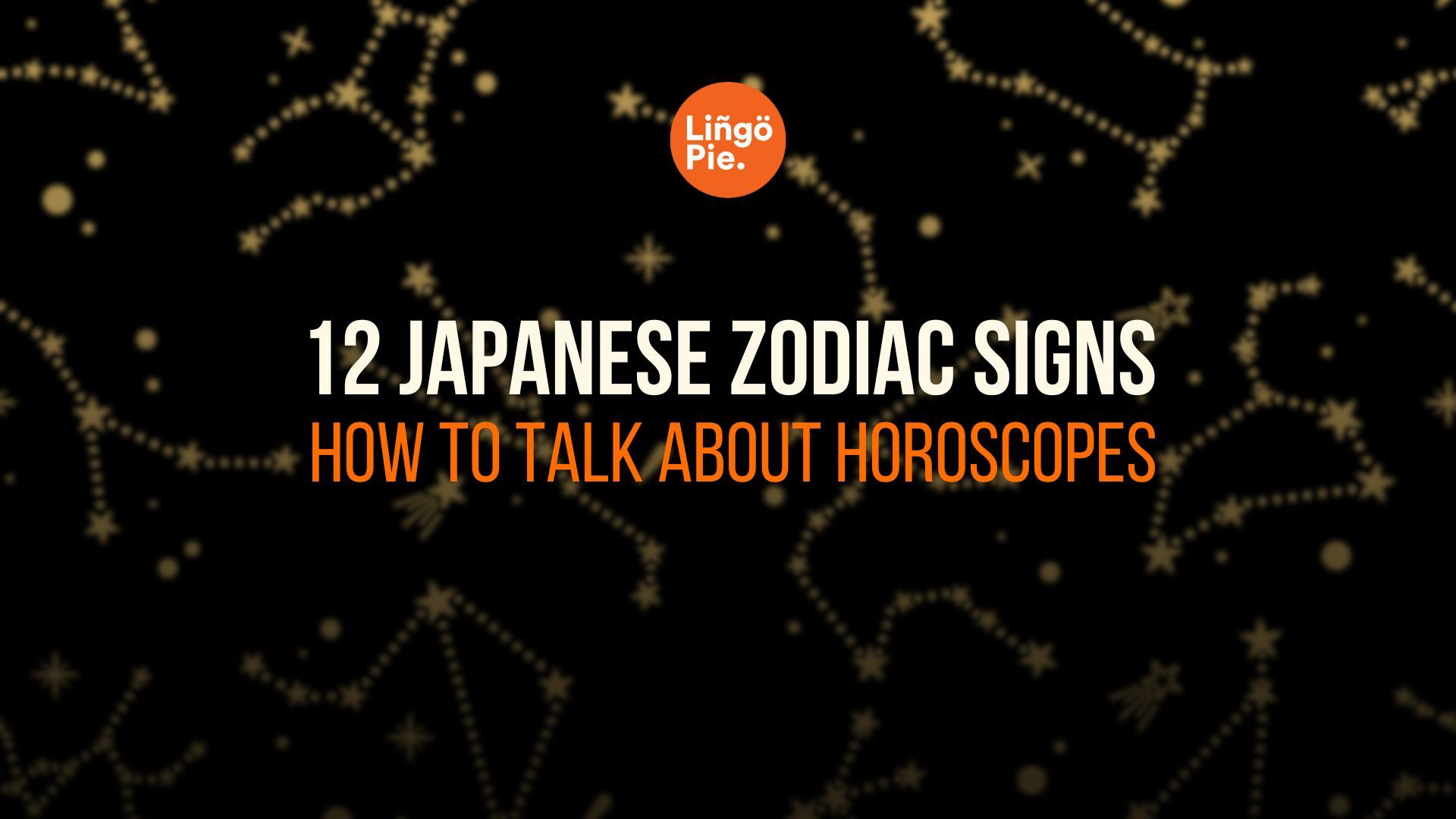
Learn Japanese With Lingopie
Ready to level up your Japanese? Try Lingopie free for 7 days and dive into a world of Japanese content that makes learning feel like binge-watching your favorite shows. With interactive subtitles, instant translations, and the ability to practice these good luck phrases in context, you'll be encouraging friends in natural Japanese before you know it!
Get your 7-day free trial at Lingopie now and turn your Netflix time into Japanese learning time. がんばって (Ganbatte)!


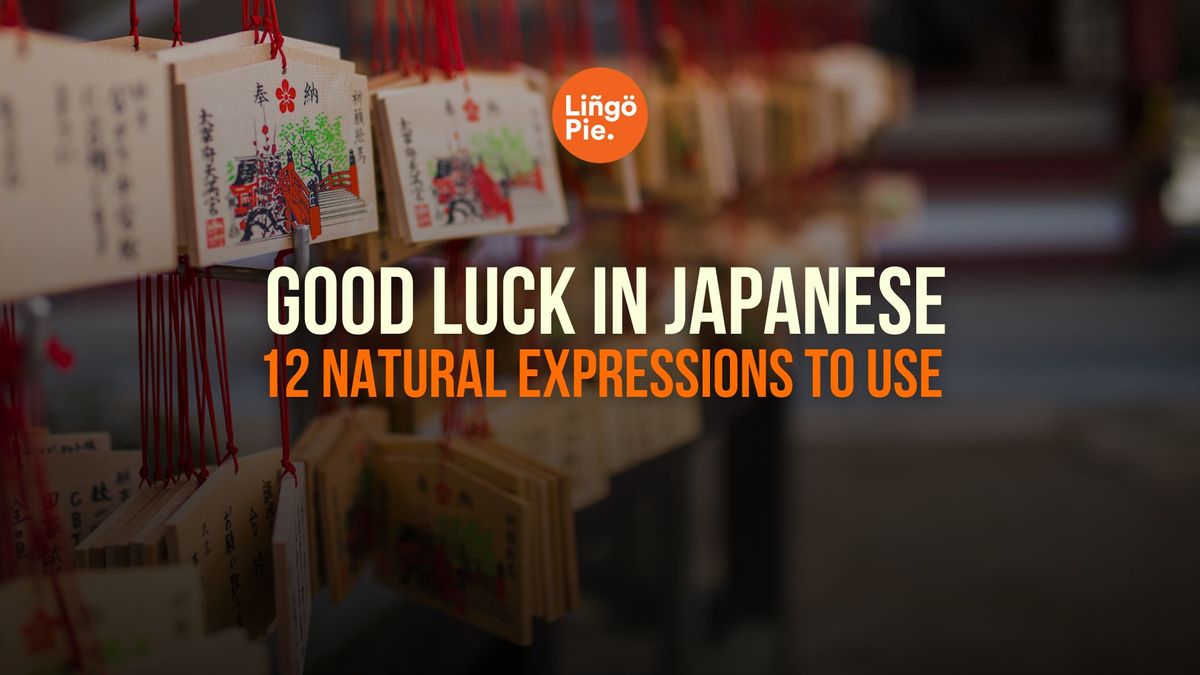



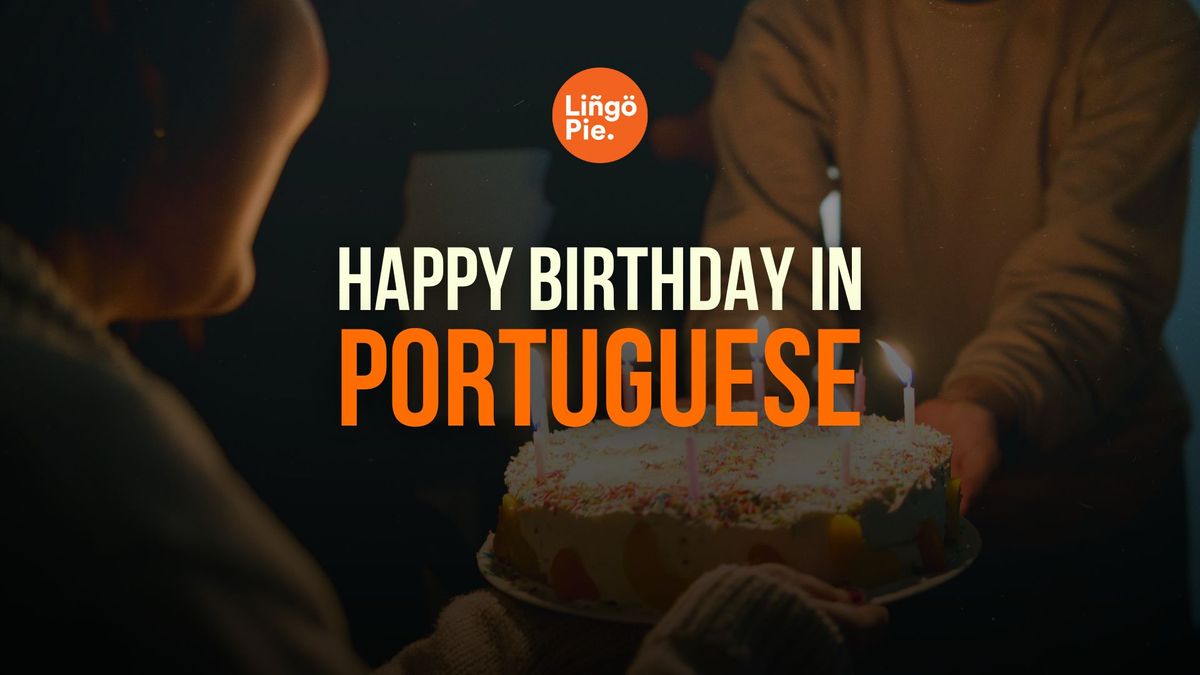
![How To Use Mo (も) Particle In Japanese Grammar [Guide]](/blog/content/images/size/w300/2025/06/How-To-Use-Mo-----Particle-In-Japanese-Grammar.jpg)

